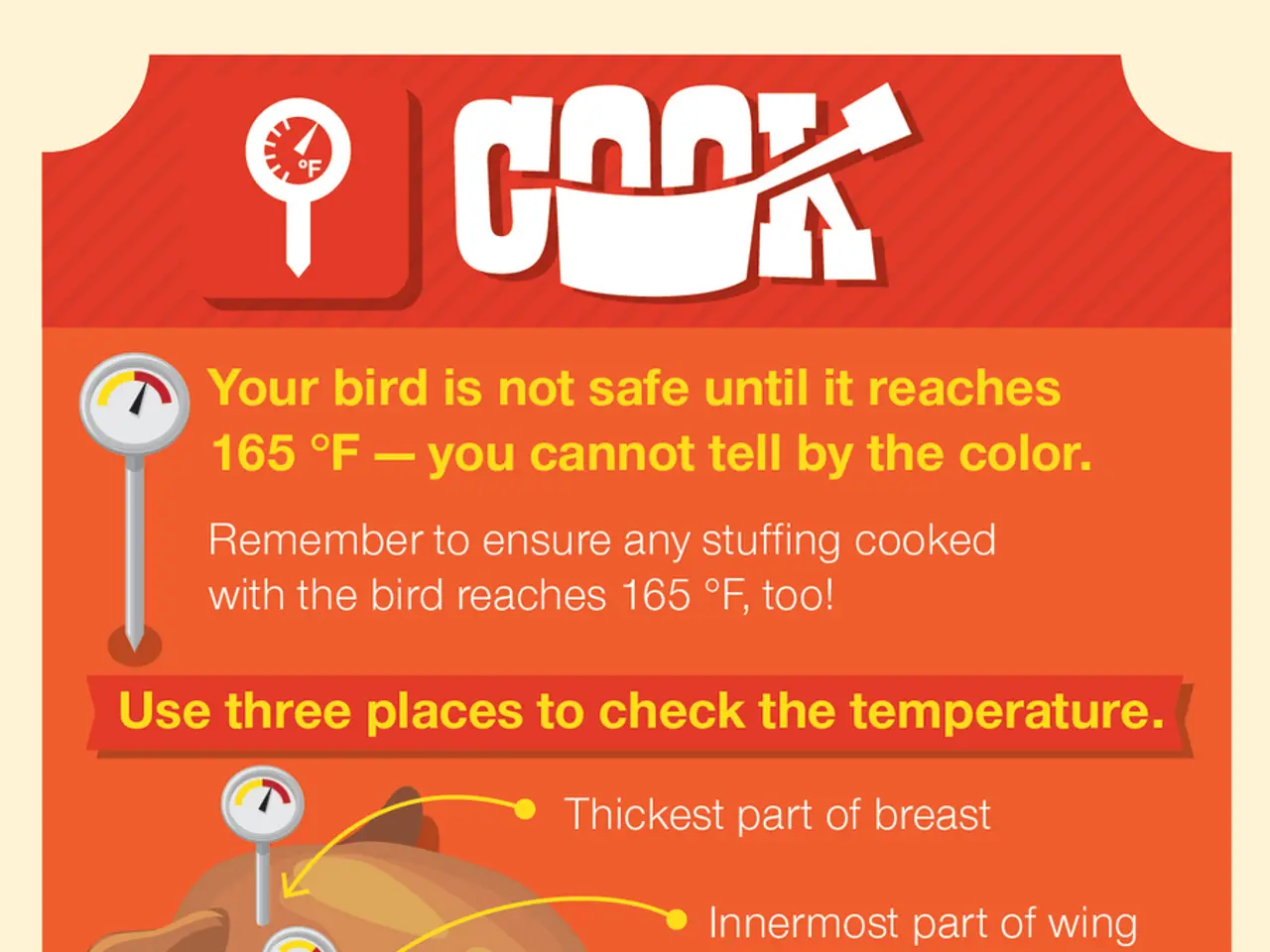Officials remain vigilant amidst the threat of avian flu
In response to the recent bird flu outbreak in Cambodia, authorities in Thailand have rolled out a series of preventive measures to safeguard the country from the avian influenza virus.
The Department of Livestock Development has implemented a 90-day ban on poultry imports from Cambodia to curb the spread of the H5N1 strain, a subclade of avian influenza viruses that poses a high concern due to its potential to cause major outbreaks.
Poultry farmers in Thailand have been advised to boost their hygiene protocols, with recommendations for weekly cleaning and disinfection of poultry housing and surroundings, tightened farm access controls, and mandatory vehicle disinfection. High-risk zones in poultry farms near the border with Cambodia are to be closely monitored.
Farmers are urged to closely monitor their animals for unusual symptoms or illness-related deaths and avoid selling or consuming suspicious birds. Officials have been instructed to monitor the condition of poultry stocks in farms along the border with Cambodia.
The Thai government has emphasised that while the risk of bird flu spreading to Thailand remains low, complacency should be avoided. Disease surveillance efforts have been stepped up, and biosecurity measures in poultry production have been enhanced.
Public health officials in Thailand have also emphasised the use of personal protective equipment (PPE) for people in contact with animals, ongoing genetic sequencing, and timely reporting of cases to national and international bodies as part of comprehensive risk management.
In a coordinated effort, these measures aim to minimise the introduction and spread of avian influenza from Cambodia into Thailand through trade controls, farm hygiene, border biosecurity, and public vigilance.
The outbreak in Cambodia has resulted in the death of six people since 2023, with 26 confirmed human cases of bird flu reported in the country. This year alone, 11 deaths from bird flu have been recorded in Cambodia.
The public in Thailand has been urged to report suspected bird flu cases to their local livestock officers, animal health, or public health volunteers. The Department of Disease Control in Thailand has raised its alert level due to the threat posed by bird flu, with health authorities remaining on high alert for cases.
It is important to note that sick or dead poultry should not be sold, distributed, or consumed in Thailand. The public is reminded to follow these guidelines to ensure the safety of the community and prevent the further spread of the avian influenza virus.
[1] Department of Livestock Development (2023). Preventive measures against avian influenza virus in Thailand. [Online] Available at: https://www.dld.go.th/en/news/2023/02/26/preventive-measures-against-avian-influenza-virus-thailand/
[2] Ministry of Public Health (2023). Guidelines for bird flu prevention in Thailand. [Online] Available at: https://www.moph.go.th/en/news/2023/02/27/guidelines-bird-flu-prevention-thailand/
[3] World Health Organization (2023). Avian influenza A(H5N1) in Cambodia. [Online] Available at: https://www.who.int/emergencies/diseases/avian-influenza-a-h5n1/country-updates/cambodia
[4] Government of Thailand (2023). Statement on the bird flu situation in Cambodia. [Online] Available at: https://www.thailand.go.th/thai-embassy/news/74647-statement-on-the-bird-flu-situation-in-cambodia.html
- Amidst the ongoing medical-conditions issue with bird flu in Cambodia, the Thai government is focusing on both science and health-and-wellness, taking stringent measures to protect the country from the avian influenza virus.
- In addition to controlling poultry trade, the Department of Livestock Development is recommending fitness-and-exercise for farmers in the form of weekly cleaning and disinfection of poultry housing and surroundings.
- Due to the threat of respiratory-conditions like bird flu, public health officials in Thailand are advocating for mental-health awareness, urging citizens to report suspected cases and seek help if needed.
- Skin-care is also a concern as officials have advised against the handling of sick or dead poultry without proper protective equipment.
- Beyond avian influenza, the government is emphasizing the importance of nutrition in maintaining cardiovascular-health, especially during weather conditions that may impact the immune system.




